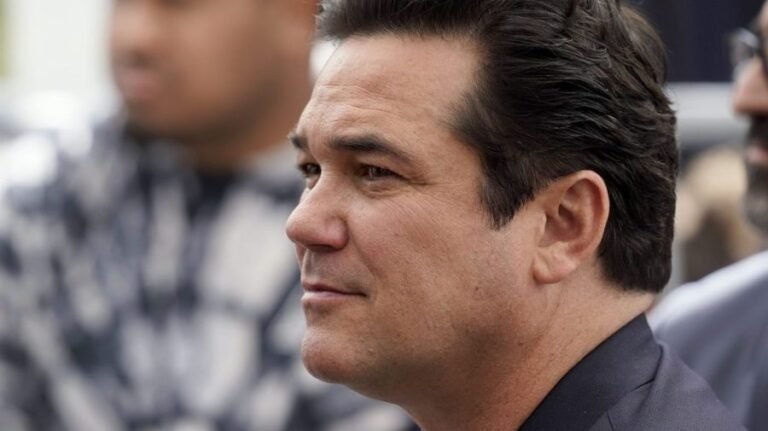
Virtually every smartphone on the planet runs on a chip paid for by American taxpayers — a chip that I helped invent. Now Congress is moving to cut funding for the National Science Foundation that could lead to future breakthroughs.
Investing in innovation is not wasteful spending. It is one of the smartest investments Washington makes, creating new jobs, stronger businesses and higher tax revenue in every corner of the country. Cutting the level of government funding for scientific research now would rip those future returns out of American hands and deliver them to our global competitors.
I built my career in public universities. Over four decades, I helped lead a dozen federally funded research labs. Five of them produced breakthrough technologies that became part of the backbone of modern life.
In the 1980s, we developed a much more efficient style of microprocessor (the RISC chip) in a university lab with graduate students funded by the government. At the time, few imagined that breakthrough would one day power 300 billion chips. The National Science Foundation also funded research that made digital storage much more reliable and affordable (called RAID storage), enhancing everything from cloud computing to online banking. These innovations helped launch entire industries and are used daily by billions of people.
These breakthroughs did not come from corporate boardrooms or billionaire-backed startups. They were built by students, developed in public labs and funded by American taxpayers.
For decades, my research received support from the NSF’s Directorate for Computer and Information Science and Engineering, through grants and Ph.D. fellowships. All told, American taxpayers invested just under $100 million in the labs I helped lead. Accounting for inflation, technologies that came out of them went on to generate over $1 trillion in product sales. That is a 10,000-to-1 return on investment to the public and surely at least 1,000-to-1 return directly back to the government in taxes. Not from luck, but from decades of public investment.
And the payoff is real. These gains show up as jobs in 44 states, tools that power small businesses and tax revenue that supports public schools, infrastructure and national defense. These returns belong to the American taxpayer.
This isn’t some ivory tower experiment or elite subsidy. It is an innovation engine and one of the most powerful drivers of U.S. economic strength.
So what is Congress doing with one of the few federal programs that consistently creates value for everyday Americans? Preparing to cut National Science Foundation funding by $2 billion, a 23 percent reduction from 2025.
The Trump administration has signaled that it wants to prioritize artificial intelligence, with efforts such as the recent AI Action Plan and the announcement of $100 million in NSF investment. These efforts can’t begin to offset the damage of deep cuts to the broader ecosystem that makes future AI breakthroughs possible.
Cutting the budget of the Directorate for Computer and Information Science and Engineering would be a self-inflicted blow to American competitiveness. Lawmakers say they’re prioritizing programs with the greatest national impact, but this cut targets the very office funding the administration’s top priorities: AI, quantum computing and cybersecurity. That’s not prioritization. It’s a fiduciary failure.
AI is advancing fast, but it depends on breakthroughs throughout the computing stack. My own specialty, computer design, may seem distant from AI, but it’s fundamental. Just look at NVIDIA’s stock price.
None of this appeared out of thin air. It came from researchers trained through NSF fellowships. Shrink the pipeline, and we lose the lead. Anticipating cuts, NSF has already halved its fellowships for 2025. We need more computer scientists, not fewer, and we need them trained here, not in countries eager to claim our place.
China has more than tripled its research spending since 2010 and continues to raise it every year. China understands what is at stake: leadership in AI, semiconductors, cybersecurity and advanced computing. If we back off now, foreign firms will not hesitate to build on the breakthroughs that American taxpayers made possible. They will turn our investment in research into their dominance, and the jobs and industries that should grow in Atlanta, Boston and Dallas will take root in London, Bangalore and Shenzhen.
As a scientist, I’m scared. As a taxpayer, I’m livid. We built a lead. Now Washington is ready to give it away.
Since its founding, America has capitalized on innovation as the primary engine of wealth creation and nationwide prosperity. History is full of nations that failed to innovate and lost their edge. The U.S. has done the opposite. We invested in research, trained generations of scientists and engineers and built the most dynamic innovation ecosystem the world has ever seen.
Every American taxpayer is a silent shareholder in that success. If we walk away now, we lose not just future breakthroughs but also what we have already earned.
If Congress fails to preserve this funding, we hand our competitive edge and prosperity to someone else.
David Patterson is a University of California Pardee Professor Emeritus. He has won the Association of Computing Machinery A.M. Turing Award and the National Academy of Engineering Charles Draper Prize.


